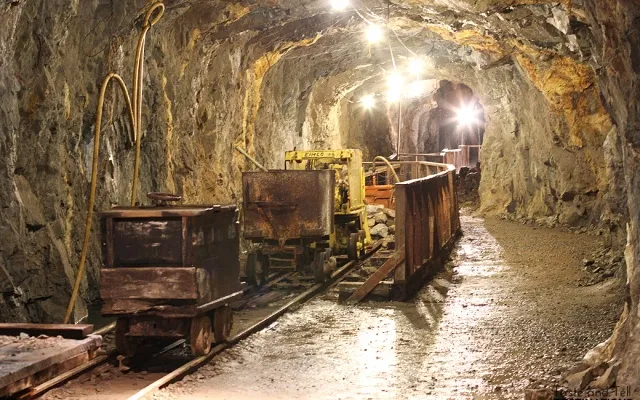

Ghana owes its current level of development to the mining sector, and without it, the country would not be where it is today.
That’s the claim by Ahmed Dasana Nantogmah, Acting Chief Executive of the Ghana Chamber of Mines, in an interview on JoyNews’ PM Express Business Edition on Thursday, May 22.
“But for mining, Ghana won’t be here today,” he stated, making the point that while communities may sometimes feel neglected, the national economy is being propped up by mining revenue, most of which ends up far from the mining towns.
According to Nantogmah, the conversation about development must not ignore the significant contributions mining firms are already making.
“There’s a broad argument that development is in the hands of the state. That’s true. But mining companies do a lot in their communities. You go to some communities, and the schools there, the hospitals there, are run by mining companies,” he said.
He explained that mining companies are often held solely responsible for underdevelopment in host communities, even when royalties paid to local and national authorities are not transparently used.
“The mining company cannot do everything. Meanwhile, when the royalties are paid, they are supposed to return some to their host communities and the district assemblies, and the palace to be used for development. The question we ask is: are they being used for that development?” he asked.
Mr Nantogmah questioned why some assemblies that receive royalties would still return to the companies to build roads and infrastructure.
“If there’s a one-kilometre road in town and there’s an assembly that gets mineral royalties, why would the assembly go back to a company like Gold Fields and say, come and develop the road for me?”
He cited a notable example of Gold Fields Ghana constructing over 33 kilometres of road for the community, which has since benefited everyone.
“So that’s why we are also asking for a law that will regulate the utilisation of mineral royalties. We know there’s one in petroleum revenue management. Why can’t we do something for mining?”
The Chamber wants a Mineral Revenue Management Act to ensure funds are not diverted into recurrent expenditure.
“If the law stipulates that mineral royalties can only be used for health, education and sanitation, then you are bound by law to use it for that. Otherwise, the money goes to the community, and nobody knows where it enters,” Mr Nantogmah argued.
He called attention to towns like Obuasi, which have seen decades of mining activity but little commensurate development.
“If you look at Obuasi, with the mining company there, I think a lot of royalties are supposed to come back. The question is, do they come back? And if they do, what are they being used for?”
He stressed that while it is fair to scrutinise mining companies, the same level of scrutiny must be directed at state institutions and assemblies that are responsible for the management of the royalties.
“Let’s ask of the mining companies, but also ask about the development authorities, and see how we can work together. Otherwise, we’ll keep complaining that the communities are not developed.”
He also pointed to structural issues such as poor town planning in mining areas and warned against expecting mining companies to take over the responsibilities of local government.
“If the town is not properly planned, it’s not the job of the mining company to make the streets straight or build skyscrapers.”
He revealed findings from a recent study showing that 80% of mining revenue benefits are concentrated in Accra.
“That’s where they are used to develop the whole of Ghana. So Ghana is developing on the back of mining.”
Mr Nantogmah concluded by urging a rethink of how mineral royalties are allocated and used.
“Maybe the revenue going back is small. Should we increase it? Should we tie it to specific projects? That’s why we think something must be done.”
DISCLAIMER: The Views, Comments, Opinions, Contributions and Statements made by Readers and Contributors on this platform do not necessarily represent the views or policy of Multimedia Group Limited.
DISCLAIMER: The Views, Comments, Opinions, Contributions and Statements made by Readers and Contributors on this platform do not necessarily represent the views or policy of Multimedia Group Limited.

